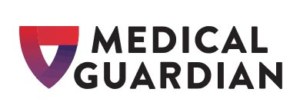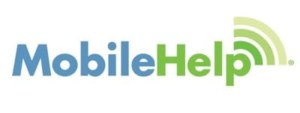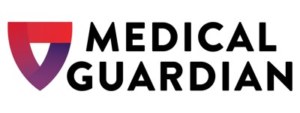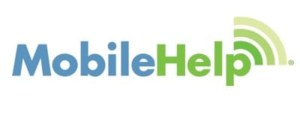Best Life Alert Alternatives
Key Takeaways
- Life Alert is one of the most well-known medical alert companies and responds to more than 2 million calls per year.
- Life Alert offers standard at-home systems with landline and cellular connection options, waterproof help buttons, and a mobile system with GPS tracking.
- Shoppers can’t order Life Alert directly from the site, and it’s difficult to get pricing and product information without speaking with a sales representative.
- Bay Alarm Medical, Medical Guardian, MobileHelp, or Aloe Care Health may be a better choice if you’re looking for a medical alert system with fall detection, no long-term contracts, and more modern devices compared to Life Alert.
What Are the Best Alternatives to Life Alert?

When discussing medical alert systems, one of the first catchphrases people think of is, “Help! I’ve fallen and I can’t get up!” coined by Life Alert. As a pioneer in the market of personal emergency response systems, Life Alert responds to more than 2 million calls per year. In 2020 alone, more than 40,000 people were saved from a catastrophic event by using Life Alert.
Life Alert was one of the first big names in medical alert systems and has been dominating medical alert advertising ever since its debut in 1987. A company like Life Alert offers clear benefits to older adults and people more prone to medical emergencies, like those with disabilities or health conditions, and their longevity in the industry is a definite benefit if you’re looking for a trusted brand.
Now, nearly four decades later, there are quite a few medical alert companies offering similar services with a variety of features, coverage, and prices. It’s important to evaluate your options and choose a system that best aligns with your lifestyle and medical needs, but we’ll first touch on the benefits of choosing Life Alert before discussing alternatives.
Life Alert Pros
- The medical alert company has been in the business since 1987 and is an established, reliable brand.
- Built-in backup batteries in the base station last 72 hours, ensuring continued connection to the Life Alert emergency response center during a power outage. Most competitor base stations have only 24- to 32-hour backup batteries.
- Life Alert’s waterproof pendants or medical alert bracelets can be worn in the shower. Most packages also include waterproof help buttons to place in your shower, bathroom or other high-risk areas for extra protection.
When determining where most falls occur, it was found that around 60% of falls occur within someone’s home. The National Institutes of Health determined that a fall in the bathroom was almost two and a half times more likely to result in injury than a fall in the living room. Waterproof equipment helps protect you or your loved one in more high-risk areas.
Six Reasons to Consider an Alternative to Life Alert
The benefits of a medical alert device such as Life Alert are obvious when it comes to preventing serious injury in older adults. Although Life Alert is a commonly recognized brand, it’s not the only option. Let’s take a closer look at some of the drawbacks of Life Alert.
Life Alert Cost
Life Alert is more costly than other medical alert devices. Monthly subscription fees range anywhere from $49–$89, compared with other brands like MobileHelp, Medical Guardian, and Aloe Care Health whose highest-prices subscription options are around $50 per month. Life Alert also has equipment activation fees ranging from $95–$198, whereas many competitors have lower (if any) equipment activation fees. While they are more expensive overall, Life Alert does offer free shipping and no monthly equipment fees, as do many other medical alert system brands.
Life Alert Pricing Compared
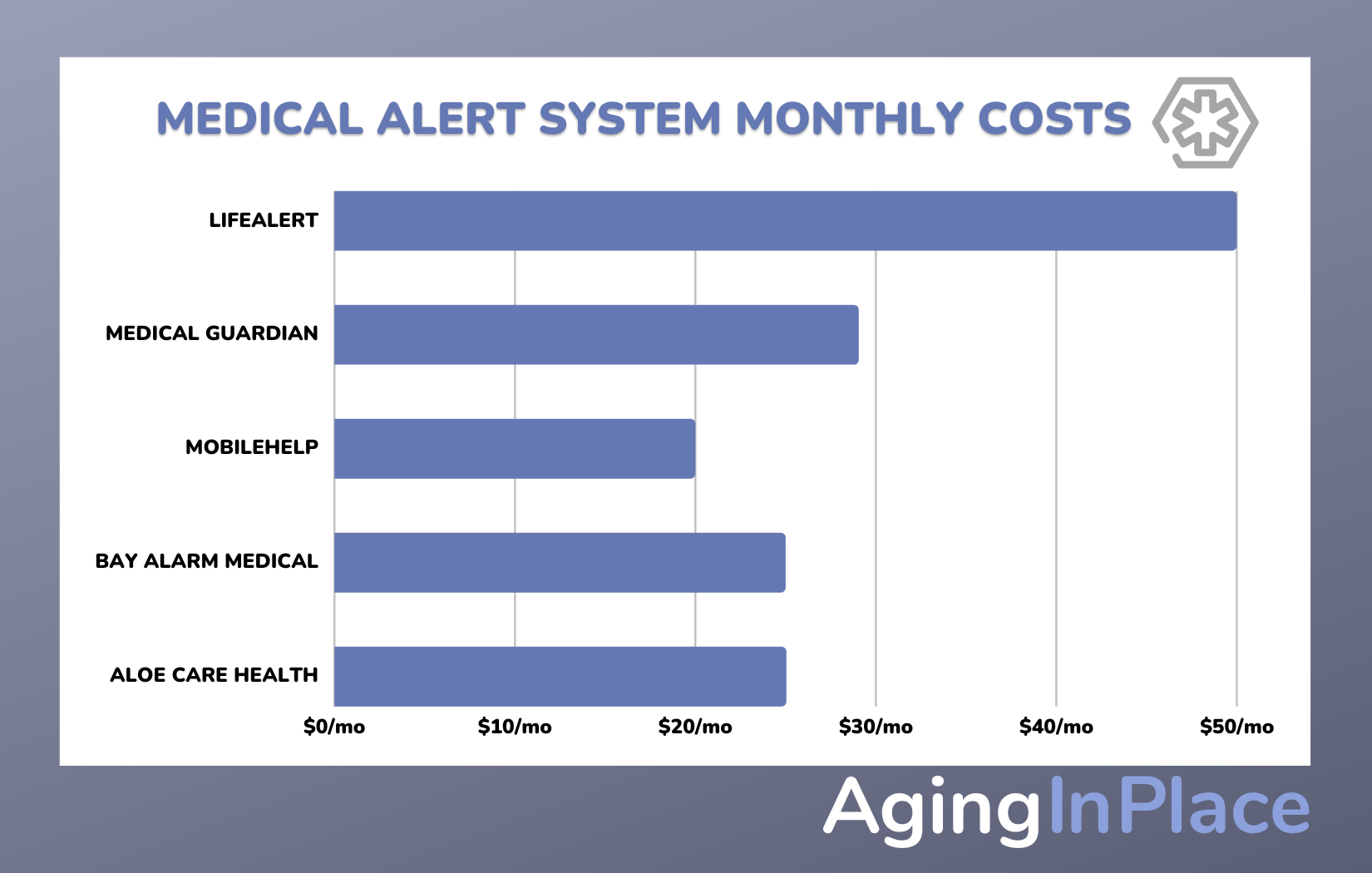
Length of Contract
Life Alert requires a three-year contract that you can only cancel under specific circumstances. We tried to get some clarification about their contract and cancellation, and found their customer service representatives to be resistant to discussing the terms in detail. They did explain that the contract is actually a billing agreement as opposed to a service contract, meaning that the user is agreeing to be held liable for three years of payment. Cancellation is only allowable in the event of the user’s death, or in rare instances where the user can confirm that they no longer require a medical alert system. Most other medical alert system companies don’t have long-term contracts and let you cancel your subscription at any time., though you may be charged for the full month of service regardless of when in the month you cancel.
Lack of Pricing Transparency
Life Alert’s website does not offer clearly noted packages and pricing. You’ll need to speak with a Life Alert sales representative to learn more about each package and the total cost. In addition, Life Alert representatives are reluctant to give any information about their products, pricing, or policies until you’ve given information including your name, phone number, and mailing address. Many other companies have their features, prices, and additional fees listed prominently on their website, as well as options to sign up for service easily online.
No Automatic Fall Detection Available
Life Alert doesn’t offer fall detection for any of its devices. Automatic fall detection technology triggers an alert to the emergency call system if the sensor detects a rapid change in position or fall. Some medical alert devices do this using accelerometers. The help button does not need to be pressed for a fall detection alert to be sent to the monitoring center. This is especially helpful if you lose consciousness or hit your head. According to the Centers for Disease Control and Prevention (CDC), there are around 36 million falls reported among older adults annually. One out of every five of these falls results in serious injury, such as a broken bone or traumatic head injury, requiring emergency medical care. This technology can greatly reduce the risk of serious injury and help decrease medical treatment costs.
No Trial Period
Once you’ve purchased your package, you are locked into your subscription until the contract expires or is up for renewal. This is not the norm among medical alert system companies. Aloe Care Health, MobileHelp, and Bay Alarm offer 30-day risk-free trial periods during which the system can be returned and fully refunded, and Medical Guardian requires no contract and no cancellation fee at any time.
Additional Features Not Available
The medical alert industry is constantly evolving to offer add-ons based on changing needs for older adults and their loved ones. These features might include medication reminders, appointment reminders, activity tracking, and home environment monitoring, which can help family members and caregivers customize their package to their loved one’s needs. While Life Alert offers a mobile system with GPS tracking, it doesn’t have other common add-on perks like secure lockboxes, a caregiver app, or medication reminders.
Compare Alternatives to Life Alert
| Life Alert | |
| Minimum Monthly Fee | $49.95/month |
|---|---|
| Activation Cost | $95-$198 |
| Contract | 3-year minimum |
| Fall Detection | Not available |
| Medical Guardian | |
| Minimum Monthly Fee | $29.95/month |
|---|---|
| Activation Cost | None |
| Contract | Not required, but discounts come with annual contracts |
| Fall Detection | $10/month |
| MobileHelp | |
| Minimum Monthly Fee | $19.95/month |
|---|---|
| Activation Cost | $49.95 for Classic system |
| Contract | None |
| Fall Detection | $11/month |
| Bay Alarm Medical | |
| Minimum Monthly Fee | $24.95/month |
|---|---|
| Activation Cost | None |
| Contract | None |
| Fall Detection | $10/month |
| Aloe Care Health | |
| Minimum Monthly Fee | $24.99/month |
|---|---|
| Activation Cost | None |
| Contract | None |
| Fall Detection | Included with some plans |
Best Life Alert Alternatives
Top Features
- 1,300-foot range for the at-home landline system and 1,400-foot protection range for the at-home cellular system
- Lightweight mobile devices and smartwatch option
- Less than 15-second response time during our system test
Pros
-
No charge for cancellation and pro-rated refund
-
TMA Five Diamond Certified monitoring center
-
Five packages available: two at-home and three on-the-go, including the MGMove Smartwatch
-
Product quiz to help find the best device
Cons
-
Device protection plan costs extra
-
Contracts are month-to-month after a three-month minimum commitment
Medical Guardian Vs. Life Alert
| Medical Guardian | |
| In-home system | $29.95/month* |
|---|---|
| Mobile System | $39.95/month* |
| Equipment Fee | $0–$199.95 |
| Activation Fee | None |
| Contract | Not required but annual contracts offered at a discount |
| Automatic Fall Detection | $10/month |
| GPS | Yes |
| Life Alert | |
| In-home system | $49.95/month |
|---|---|
| Mobile System | $89.95/month |
| Equipment Fee | $0 |
| Activation Fee | $95–$198 |
| Contract | 3-year minimum requirement |
| Automatic Fall Detection | Not available |
| GPS | Yes |
Pricing listed for in-home system is based on the Classic Guardian system and pricing for mobile system is based on the Mobile 2.0, which are the company’s most affordable options.
Top Features:
- 1,400-foot protection range with at-home cellular system
- Offers three at-home options and more advanced at-home devices like the digital tablet Touch Classic
- Connect virtually with a board-certified doctor with MDLIVE telehealth for an additional monthly fee
Pros
-
30-day money-back guarantee
-
Medication reminder available
-
Product quiz to help find the best device
-
Eight packages available: three at-home options, two on-the-go options, and three bundle options
Cons
-
$49.95–$99.95 processing fee charged for some devices
-
Monitoring center not TMA Five Diamond Certified
MobileHelp Vs. Life Alert
| MobileHelp | |
| In-home system | $19.95/month* |
|---|---|
| Mobile System | $37.95/month* |
| Equipment Fee | $0–$49.95 |
| Activation Fee | $49.95 for Classic system |
| Contract | None |
| Automatic Fall Detection | $11/month |
| GPS | Yes |
| Life Alert | |
| In-home system | $49.95/month |
|---|---|
| Mobile System | $89.95/month |
| Equipment Fee | $0 |
| Activation Fee | $95–$198 |
| Contract | 3-year minimum requirement |
| Automatic Fall Detection | Not available |
| GPS | Yes |
*Pricing listed for MobileHelp are based on the Classic in-home system and Solo mobile system, which are the company’s most affordable options.
TOp features:
- The mobile system’s monthly fee is lower than most competitors ($29.95 per month)
- Free GPS monitoring services with mobile and smartwatch subscriptions
- Can add at-home monitoring for your partner or roommate by purchasing an additional help button—no additional subscription required
Pros
-
30-day money-back guarantee
-
The Monitoring Association (TMA) Five Diamond Certified monitoring center
-
Locked into original monthly price even if cost increases over time
-
A+ rating on Better Business Bureau and a customer review rating of over 4 out of 5 stars
Cons
-
Landline and cellular at-home systems have the same protection range from the base station (1,000 feet)
-
Device protection plan costs extra
Bay Alarm Medical Vs. Life Alert
| Bay Alarm Medical | |
| In-home system | $24.95/month* |
|---|---|
| Mobile System | $29.95/month* |
| Equipment Fee | $0–$159 |
| Activation Fee | None |
| Contract | None |
| Automatic Fall Detection | $10/month |
| GPS | Yes |
| Life Alert | |
| In-home system | $49.95/month |
|---|---|
| Mobile System | $89.95/month |
| Equipment Fee | $0 |
| Activation Fee | $95–$198 |
| Contract | 3-year minimum requirement |
| Automatic Fall Detection | Not available |
| GPS | Yes |
*Pricing listed for Bay Alarm Medical are based on the In-Home Basic system and Mobile Lite, which are the company´s most affordable options.
Top features:
- The base station (the Hub) has built in motion, home temperature, and air quality sensors
- The Aloe Care app is included with all subscriptions. Caregivers receive updates during an emergency and call the base station, all by using the app
- Free fall detection is included with the Mobile Companion (but fall detection isn’t available with other devices)
Pros
-
30-day money-back guarantee
-
TMA Five Diamond Certified monitoring center
-
Free caregiver app with unlimited users
Cons
-
Only a 200-foot range from the base station
-
Must say “Emergency” several times to get an emergency response from the Smart Hub or fall detection sensor
-
In-home fall detection is only available in one room unless you buy the Mobile Companion
-
Expensive equipment fees ($99–$349.99)
Aloe Care Health Vs. Life Alert
| Aloe Care Health | |
| In-home system | $29.99/month* |
|---|---|
| Mobile System | Mobile Companion available at $24.99/month |
| Equipment Fee | $99.99–$349.99 |
| Activation Fee | None |
| Contract | None |
| Automatic Fall Detection | Included with some plans |
| GPS | Yes |
| Life Alert | |
| In-home system | $49.95/month |
|---|---|
| Mobile System | $89.95/month |
| Equipment Fee | $0 |
| Activation Fee | $95–$198 |
| Contract | 3-year minimum requirement |
| Automatic Fall Detection | Not available |
| GPS | Yes |
*Pricing for Aloe Care Health is based on the Essentials package, which is the company’s most affordable option.
Bottom Line
There is a wide variety of medical alert devices available. Empowering yourself with the right medical alert system can help you maintain your independence and remain in your own home knowing you’re always protected during an emergency.
Why You Can Trust Our Review
Our experts independently research and recommend products we believe provide value to the lives of our readers. We’ve collectively spent more than 1,700 hours conducting in-depth research on medical alert systems.
Our team tested multiple medical alert devices, including Medical Guardian, Aloe Care Health, Bay Alarm Medical, and MobileHelp to better understand features and provide the most accurate feedback and recommendations for our readers. All four of these brands are featured in our best medical alert systems review. We didn’t include Life Alert in our testing process because we believe its products have too many drawbacks.
To decide on our top picks, here’s what we did:
- Engaged in ongoing independent research
- Consulted with geriatricians and adult caregivers
- Mystery shopped the brands
- Surveyed medical alert system users
- Tested various medical alert systems
- Interviewed experts in the field
- Read hundreds of verified customer reviews from trusted third parties such as Better Business Bureau and Consumer Reports
We grade each medical alert company using a 1-10 rating scale and score them according to the following categories:
- Essential features
- Product functionality
- Special features
- Customer service
- Purchasing process
Features and criteria within each of these five categories are assigned point values. The more points a company receives for each criteria, the higher the company scores in the overall category.
See our full explanation of how we rate medical alert systems for a full breakdown of our scoring
Frequently Asked Questions
-
There are many Life Alert alternatives on the market today. Popular Life Alert alternatives include Bay Alarm Medical, Medical Guardian, MobileHelp, and Aloe Care Health. There are plenty of other companies that offer medical alert systems, such as ADT, LifeStation, Lively, and more.
WRITTEN BY
Danielle Pagano is a board certified Family Nurse Practitioner currently practicing Internal Medicine in rural Illinois. She has extensive experience in primary and long term care, including preventive medicine and complex chronic disease management. Danielle has participated in several medical mission trips, serving communities in Brazil, Kenya, and Ethiopia. As a working mother of three young children, Danielle appreciates spending her time outside connecting with nature while hiking or running, or relaxing with her husband.
MEDICALLY REVIEWED BY
Jenny is an Adult-Gerontology Primary Care Nurse Practitioner in NYC with a passion for working with aging adults and their family members. Prior to her clinical training at Vanderbilt School of Nursing, she worked in business and medical research at Harvard Business School and Massachusetts General Hospital. As a Caregiving Coach at Givers, Jenny helps family members manage the financial, emotional, and educational stresses of caring for their loved ones who are aging in place.
